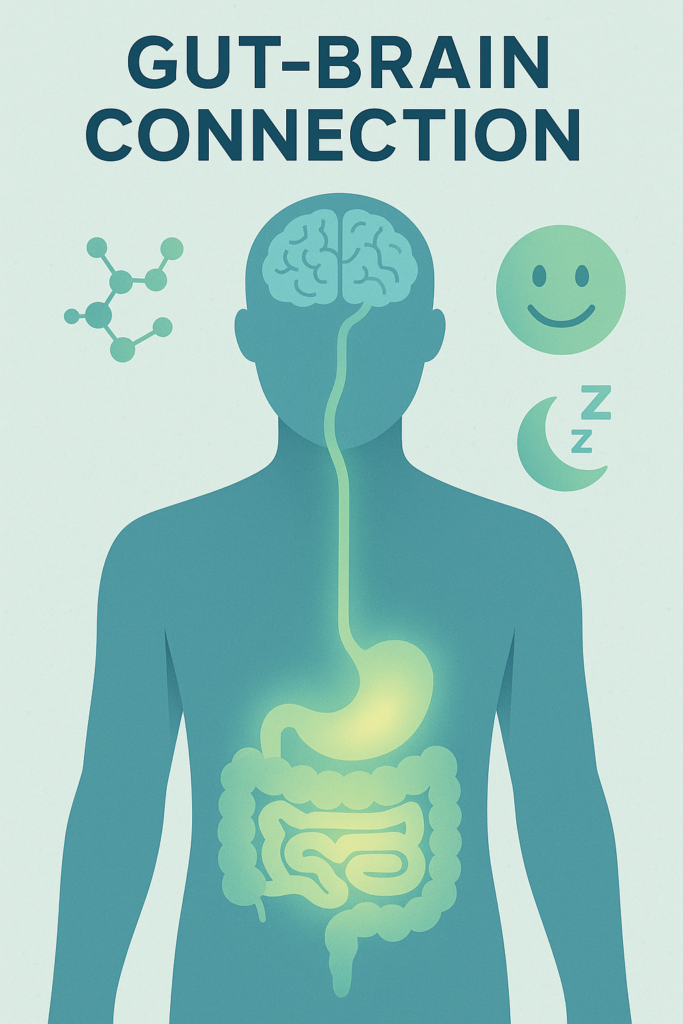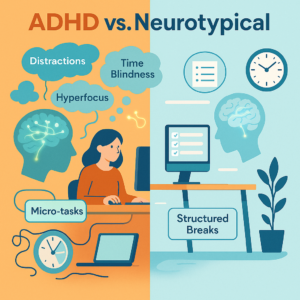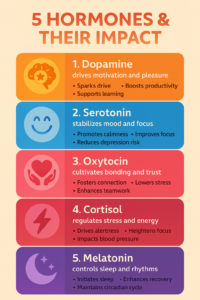
Your gut does more than digest food—it plays a key role in mood and sleep. The gut-brain axis, which connects your gut and brain, depends on a healthy microbiome to regulate serotonin (a mood stabilizer) and melatonin (a sleep hormone). Poor gut health can lead to low mood, anxiety, and poor sleep. Fortunately, simple, science-backed steps can improve gut health. This guide offers a quick, actionable plan to enhance your mood and sleep in just 3-5 minutes of reading.
Why Gut Health Matters
About 90% of serotonin is produced in the gut, which also influences melatonin production—both crucial for mood and sleep. A diverse microbiome supports this, while imbalances can disrupt it. Studies link gut dysbiosis to depression, anxiety, and insomnia (Smith et al., 2021). Nurturing your gut promotes mental clarity and restful sleep.
Step-by-Step Plan to Improve Gut Health
- Eat Probiotic-Rich Foods
Probiotics introduce beneficial bacteria to balance the microbiome. Fermented foods like yogurt, kefir, sauerkraut, and kimchi are great sources. Aim for 1-2 servings daily, such as yogurt with breakfast or kimchi with dinner. Probiotics boost serotonin and mood (Johnson et al., 2020).
Tip: Choose unsweetened yogurt to avoid added sugars. A fermenting kit can help you make sauerkraut at home. - Increase Fiber Intake
Fiber feeds gut bacteria, promoting diversity and resilience. Whole grains, fruits, vegetables, and legumes are rich in fiber. Aim for 25-30 grams daily—start with oatmeal topped with berries.
Tip: Increase fiber gradually to avoid bloating. Use a smartwatch or app, like the Fitbit Versa 4, to track intake. - Reduce Sugar and Processed Foods
Excess sugar feeds harmful gut bacteria, disrupting balance. Cut back on sugary drinks, candies, and fast food. Opt for whole foods like nuts, seeds, or fruit for snacks. This reduces inflammation, improving mood and sleep (Lee et al., 2022).
Tip: Check labels for hidden sugars. Replace soda with herbal teas or infused water. - Stay Hydrated
Water supports digestion and nutrient absorption. Dehydration can slow digestion, causing bloating. Aim for 8-10 cups of water daily, more if active. Herbal teas and water-rich foods like cucumber also count.
Tip: Use a smartwatch like the Apple Watch Series 9 for hydration reminders. - Manage Stress
Chronic stress disrupts the gut-brain axis and reduces microbiome diversity. Meditation, deep breathing, or yoga lowers cortisol, benefiting gut health. Just 10 minutes daily can help—use a guided meditation app before bed.
Tip: Track stress and sleep patterns with devices like the Fitbit Versa 4. - Prioritize Sleep Hygiene
Poor sleep harms gut health. Aim for 7-9 hours of quality sleep by keeping a regular schedule, limiting screens before bed, and creating a calm environment. A healthy gut supports deeper sleep through melatonin production.
Tip: Use devices like the Apple Watch Series 9 to track sleep patterns and adjust routines.
Enhancing the Plan
- Add Prebiotics: Garlic, onions, and bananas nourish gut bacteria.
- Exercise Regularly: 30 minutes of walking or yoga daily improves gut health.
- Limit Alcohol: Excessive drinking harms gut bacteria; try kombucha as an alternative.
Summary of Steps
- Eat Probiotic-Rich Foods: 1-2 servings daily.
- Increase Fiber: 25-30 grams from whole grains, fruits, and vegetables.
- Reduce Sugar: Cut sugary and processed foods.
- Stay Hydrated: 8-10 cups of water daily.
- Manage Stress: Practice 10 minutes of meditation or yoga.
- Prioritize Sleep: Get 7-9 hours of quality sleep.
Conclusion
Gut health impacts more than digestion—it shapes your mood, energy, and sleep quality. Small, consistent changes lead to clearer thinking and better rest. Tools like smartwatches and probiotic supplements can provide extra support.
References
Johnson, D., et al. (2020). Probiotics and mood regulation: A review. Journal of Gut Microbiology, 12(3), 45-52.
Lee, S., et al. (2022). Sugar intake and gut dysbiosis: Implications for mental health. Nutritional Neuroscience, 25(7), 891-899.
Smith, R., et al. (2021). The gut-brain axis in sleep and mood disorders. Nature Reviews Gastroenterology, 18(4), 223-231.

